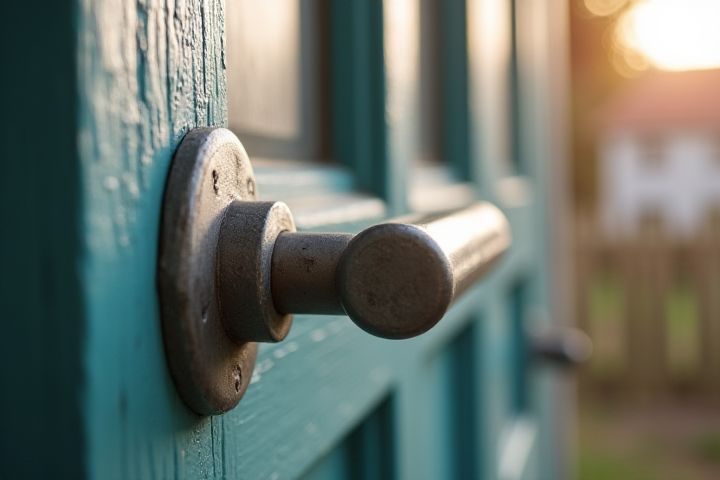
A house inspection is typically required during the home buying process, often mandated by lenders to ensure the property is in good condition before finalizing a mortgage. It's advisable to schedule an inspection after a purchase agreement is signed but before closing, allowing time to address any issues. Some states may have specific laws requiring inspections for certain property types or age ranges. While not always legally required, home inspections can reveal critical information about the roof, plumbing, electrical systems, and structural integrity, influencing your decision to buy. Investing in a comprehensive inspection can ultimately safeguard your investment and provide peace of mind regarding the home's condition.
When Is A House Inspection Required
Prior to purchasing a home
A house inspection is required prior to purchasing a home to assess the property's condition and identify any potential issues that may affect its value or safety. This crucial step typically occurs after your offer is accepted but before the final closing, allowing you to make informed decisions. During the inspection, a licensed inspector will evaluate key areas such as the foundation, roof, plumbing, electrical systems, and appliances, ensuring they comply with safety standards. Having a comprehensive inspection report empowers you to negotiate repairs or reconsider your investment based on the findings.
Before refinancing a mortgage
A house inspection is typically required before refinancing a mortgage to ensure the property's value aligns with the loan amount. Lenders often want to verify the home's condition and marketability, which influences their risk assessment. Even if you have owned the home for several years, factors like recent repairs or neighborhood changes may warrant an updated appraisal. Understanding your property's value can ultimately help in securing favorable refinancing terms that align with current market conditions.
Selling a property
A house inspection is typically required when selling a property to ensure it meets safety and structural standards, as well as to identify potential issues that could affect the sale. It is often advisable to have a pre-listing inspection, which can cost between $300 to $500, allowing you to address any concerns and improve the marketability of your home. Many buyers will request an inspection as part of their purchase agreement, which could lead to negotiations on repairs or price adjustments. Having a clean inspection report can enhance buyer confidence and expedite the selling process.
Remodeling or renovating
A house inspection is typically required before remodeling or renovating to ensure compliance with building codes and safety regulations. During this process, skilled inspectors evaluate structural integrity, electrical systems, plumbing, and other critical components to identify any potential issues. If your renovation involves significant changes, such as adding square footage or altering the layout, obtaining an inspection can help prevent costly repairs later. Always check local regulations, as requirements for inspections may vary based on location and the scope of your project.
After a major disaster
After a major disaster such as a flood, earthquake, or hurricane, a house inspection is essential to assess structural integrity and safety. Inspectors evaluate crucial elements like the foundation, roof, and electrical systems to identify potential hazards or damage. Your home's overall condition determines whether repairs are necessary before occupancy or selling. Inspections post-disaster help ensure compliance with local building codes and provide peace of mind for homeowners and buyers.
Looking for insurance coverage
A house inspection is required, particularly when a lender mandates it during the home-buying process, ensuring the property meets specific safety and structural standards. Insurers often recommend inspections to verify the home's condition, potentially affecting your coverage and premium rates. Properties built over 40 years ago may face stricter assessment criteria due to upgraded building codes and modern safety standards. By obtaining a thorough inspection report, you can identify issues that may influence your insurance options and facilitate a smoother homeownership experience.
Identifying potential hazards
A house inspection is typically required before finalizing a real estate transaction, especially for homes built before 1978, due to potential lead-based paint hazards. It's crucial to identify structural issues, mold, pest infestations, and electrical hazards, as these could pose serious safety risks. In some states, lenders may mandate a home inspection to assess the property's condition, which can affect your eligibility for loans or insurance. Investing in a thorough inspection can save you from unexpected repair costs, averaging $3,000 to $10,000, after you move in.
Compliance with local regulations
A house inspection is required to ensure compliance with local building codes and regulations before a property is sold or transferred. Many municipalities mandate inspections for specific structural elements, including plumbing, electrical systems, and roofing, to ensure safety and livability. Your local government often outlines these requirements, and failure to conduct an inspection may result in fines or complications during the sale process. Understanding these regulations is essential for both buyers and sellers to facilitate a smooth transaction and meet all legal obligations.
Buying a newly constructed home
A house inspection is typically required when purchasing a newly constructed home to ensure that all construction standards and safety codes have been met. You should schedule a professional inspection before finalizing the sale to identify any potential issues, such as structural defects, plumbing malfunctions, or electrical system concerns. This process often involves assessing the quality of workmanship and verifying that materials used are up to code. Conducting a thorough inspection helps protect your investment and ensures that your new home meets your expectations for quality and safety.
Ensuring structural integrity
A house inspection is primarily required before finalizing a property purchase, typically during the option period, to ensure structural integrity and safety. This inspection usually takes place after your offer is accepted, often within 7 to 10 days. Inspectors will evaluate key elements such as the foundation, roof, and framing, identifying potential issues that could cost between $1,500 to $5,000 in repairs. By investing in a thorough inspection, you safeguard your investment and can negotiate repairs or price adjustments based on the findings.
